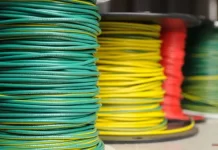With consumers having more access to the products they want, the demand on your machines is growing quickly. You’re moving more and more items every quarter and there are no signs of slowing. You’ll have to update your systems before you fall behind.
One way to improve the transportation of your goods is with updated conveyor rollers. However, with new technology, there are more options than just your standard metal ones. If you’re interested in learning about the different conveyor roller options available, continue reading.
Types of Conveyor Rollers
Rollers in a conveyor system help move your products from one location to another. Their unique design allows for the transportation of material without excessive use of power.
These conveyor systems can’t rely on gravity alone, however. Depending on the material needing moved, your conveyor needs a specific type of roller.
Steel and Stainless Steel Rollers
The most common industrial rollers are made of steel. Highly durable and easy to manufacture, steel rollers make an excellent option for most applications.
However, they are subject to rust, making them less useful in some environments. You can opt to use stainless steel rollers in these cases, but know that you’ll add extra weight to your system. If you compare their weight to the load they need to move, you might find that other options make more sense.
Plastic Conveyor Rollers
One of the newest options in the industry, plastic is a great material for commercial conveyor rollers. Not only are they lightweight, but they are resistant to rust. Many types also self-lubricate, reducing maintenance costs.
A unique benefit of plastic conveyor rollers is their longevity. In addition to their lubricity, these rollers are more flexible than most. Resistant to typical wear and tear, they often last much longer.
While plastic makes a great material for conveyor rollers in most cases, they tend to struggle under extreme conditions. If exposed to high loads or temperatures, they could potentially fail.
Aluminum Rollers
Another alternative to steel rollers is aluminum. They are lightweight, allowing for quicker transportation and easier maintenance. While less durable, these industrial conveyor rollers provide plenty of support for smaller products.
This material also has a resistance to rust, although it will corrode. To solve this, consider adding an aluminum oxide coating.
Rubber Coated Rollers
In situations when friction between the roller and the product is important, rubber coats are useful. They provide a barrier between the roller and product for extra protection and ensure delicate material is transported without dents or dings.
You can apply a variety of rubber coats to your rollers depending on your needs. However, their application can be costly, so take careful consideration of their benefits.
Additional Manufacturing Trends
With the information above, you can start to understand the different types of conveyor rollers. Each one offers a different value, and choosing the right type will help you transport your products with efficiency. For more insights on optimizing your production, check out the articles in our Business section.

































